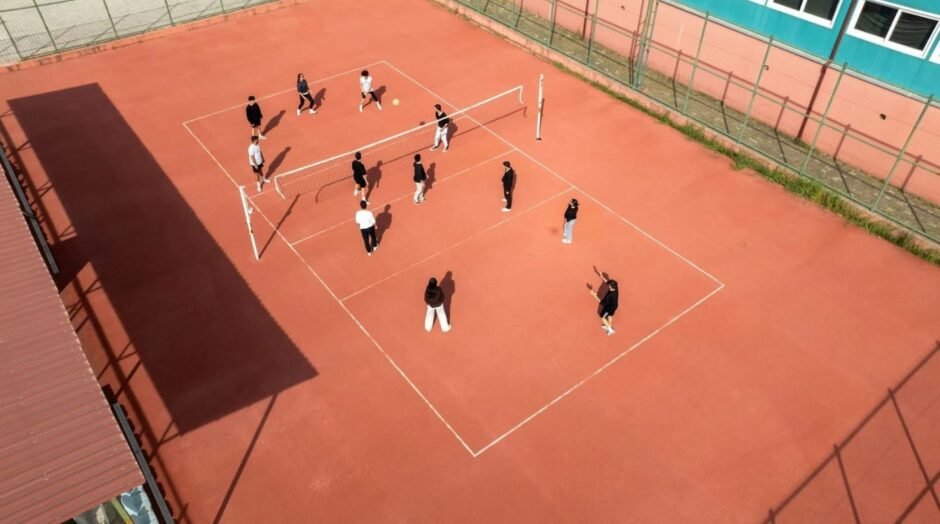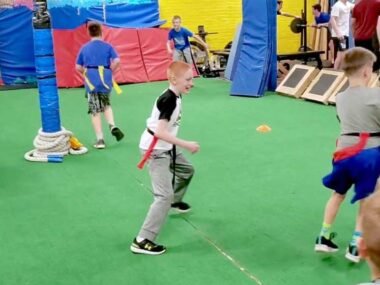A World That Forgot How to Socialise
It’s not your imagination — life feels a little more disconnected than it used to. We spend more time in group chats than actual groups, scroll through updates instead of sharing stories, and sometimes realise that whole weeks have gone by without a proper face-to-face conversation that wasn’t about work or errands.
The truth is, many people have lost the rhythm of community life over the past few years. What once came naturally — joining a club, showing up to a weekly class, saying yes to that local game — now takes effort and intention.
Yet, when you strip everything back, shared hobbies are one of the simplest, most powerful ways to reconnect. They give structure to your week, introduce you to people you’d never otherwise meet, and remind you how good it feels to belong to something that isn’t measured by screens or deadlines.
Finding that kind of connection again starts with a simple decision — to do something for yourself, with others.
The Science of Connection
Humans are social by design. Whether you’re introverted or outgoing, having consistent social contact can drastically improve mood, motivation, and even physical health. Studies show that shared activities reduce loneliness, boost dopamine levels, and help regulate stress.
Group hobbies provide a unique type of connection because they combine shared purpose with relaxation. You’re not networking or performing; you’re participating. That shared rhythm — whether it’s kicking a ball, painting, or hiking — activates the same parts of the brain linked to belonging and trust.
Simply put, social hobbies aren’t a luxury. They’re part of maintaining balance, identity, and resilience in a fast-moving world.
Why Finding the Right Hobby Is Harder Than It Sounds
It’s easy to say, “I need a hobby.” It’s harder to find one that actually sticks. Most of us have had moments of enthusiasm — signing up for a class, joining a club, and then quietly fading out after a few sessions.
The truth is, the hobbies that last aren’t necessarily the most exciting or impressive. They’re the ones that fit naturally into your lifestyle and give back as much as they take. If something feels like another task on your list, it won’t last.
The trick is to focus less on what sounds cool and more on what feels comfortable. You’ll know you’ve found the right one when showing up feels easy — even on the days you’re tired or busy.

Team Sports Are Making a Comeback
After years of solo workouts and digital communities, team sports are returning as one of the most popular ways for adults to reconnect. There’s something grounding about being part of a group that shows up, moves together, and shares small victories each week.
Local leagues, community events, and casual training sessions are all booming. You don’t have to be an athlete to join — you just have to be willing to play.
For example, joining a local soccer camp can be more than just exercise. It’s a space to meet new people, build confidence, and rediscover a bit of fun without the pressure of competition. Many community programs are designed for adults, offering both structured games and social catch-ups after. It’s the kind of environment that builds friendships naturally — one kick at a time.
Building Habits That Last
The secret to keeping a hobby isn’t intensity, it’s consistency. It’s better to commit to something small and regular than to burn out chasing a new challenge every month.
Find an activity that slots easily into your week — one that doesn’t require endless preparation or expensive equipment. Then, make it social. When other people are expecting you to show up, you’re far more likely to keep going.
The first few sessions might feel awkward or unfamiliar. But with time, that routine becomes part of your week — something steady and grounding. And when life gets busy or uncertain, that stability matters more than ever.
How to Find Your Next Social Hobby
If you’re not sure where to start, begin close to home. Check your local council’s activity programs, community centres, or social media groups. Many suburbs host walking clubs, art workshops, and weekend fitness sessions that welcome newcomers.
If you want something active, community sports programs are a great option — from social netball and cricket to dance, swimming, and of course, soccer. If you’re looking for something slower, creative meetups like pottery or book clubs can offer the same sense of belonging.
The key is to treat it like an experiment. Try something, give it a few weeks, and if it doesn’t feel right, move on. You’re not failing; you’re refining what works for you.
Reclaiming Real Connection
The best hobbies remind you that connection doesn’t need to be complicated. You don’t have to chase productivity or performance — just presence.
Social hobbies bring people together, keep your mind and body active, and create the kind of friendships that don’t exist through screens. Whether it’s a weekend soccer camp, a yoga group, or a painting class, what matters most is that it gets you out into the world again.
Because in the end, happiness doesn’t come from doing more. It comes from doing something meaningful, with people who make it feel worthwhile.










